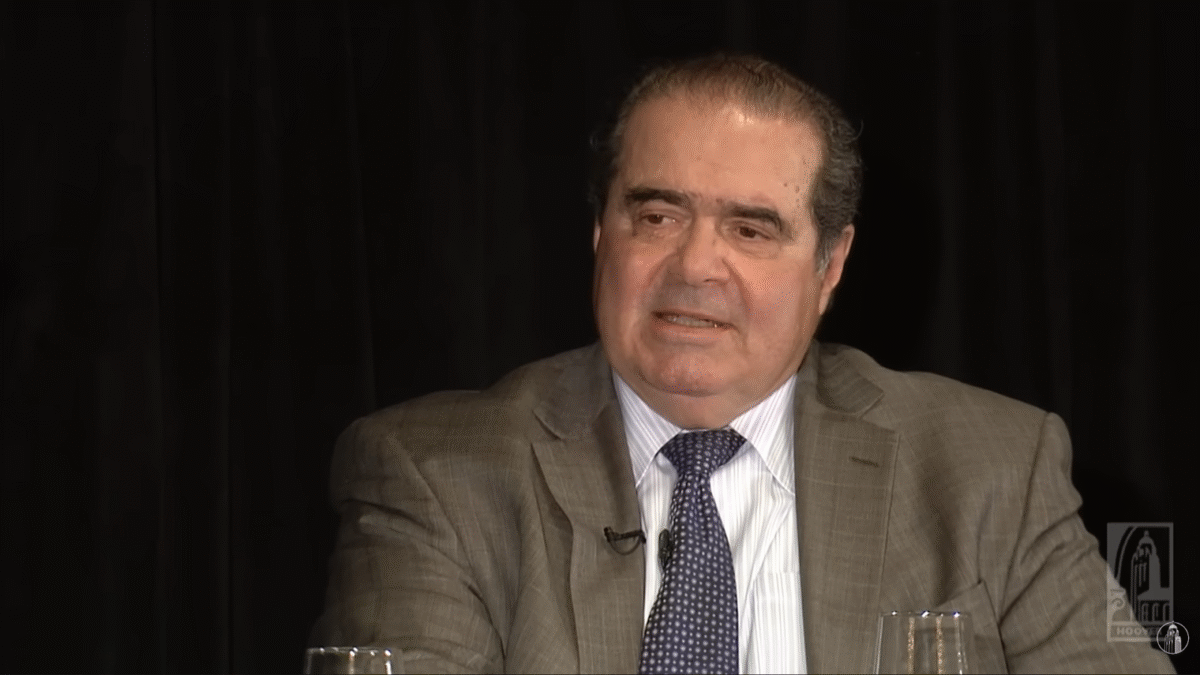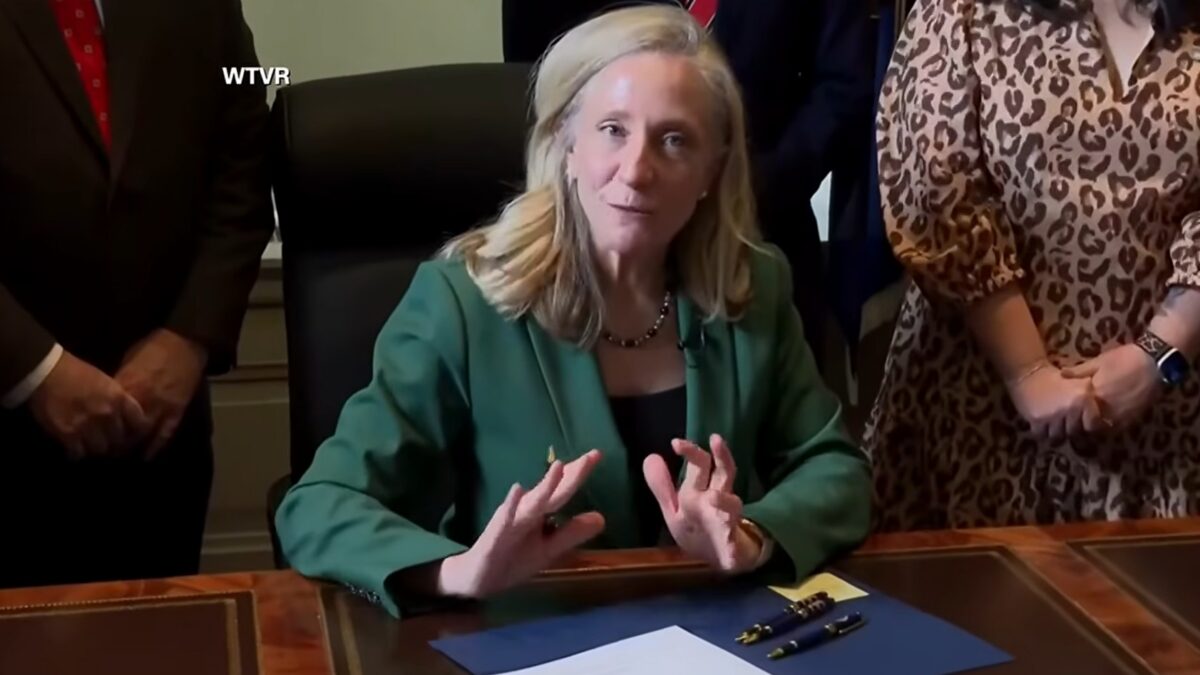
Former judicial nominee Michael Bogren may not be an anti-Catholic bigot. On that I am willing to take the word of Margot Cleveland, a cousin of his who has written many fine articles for The Federalist. But he was willing to play the part when the city of East Lansing paid him to, and for that his nomination to the Western District of Michigan deserved to be defeated.
He was derailed by Missouri Sen. Josh Hawley, who grilled Bogren over his comparison of Catholics to the Klu Klux Klan. But the fallout of this episode will linger. Hawley and other conservative senators have made it clear that lawyers who indulge in anti-religious bigotry, whether personally or professionally, should not be nominated as judges, and will be rejected if they are.
Hawley was also sending a message against the business-as-usual, good-old-boy approach to judicial nominees that has produced so many failures and disappointments. The voters who elected Trump and Hawley want originalist judges, not well-connected compromises or amiable squishes.
The immediate controversy arose from Bogren’s defense of East Lansing’s efforts to, in Cleveland’s words, “bar a family-owned orchard from the local farmer’s market because it refused to rent its facilities for same-sex marriage celebrations.” Reading Cleveland’s account, it is hard not to have some sympathy for Bogren, who went through the miseries of the judicial confirmation process only to be rejected over what he presumably thought was just a zealous effort on behalf of his client.
Cleveland is correct that lawyers have a duty to represent their clients to the best of their abilities, even if the client is wrong or unpopular. But lawyers do not have to take every case that is offered to them. They do not have to work on or sign their names to every case their firm takes. Most importantly, they do not have to make nasty, bigoted arguments as part of a case—indeed, doing so is poor lawyering.
Bogren did just that in his efforts against the Tennes family and their business, Country Mill Farms. It is true that the argument that he made, which was essentially, “If we can’t ban the Catholics, then we can’t ban the KKK,” does not explicitly say that Catholics are the moral equivalent of the KKK, but it is implied, especially because there was no legal reason to drag the KKK into the case.
Bogren chose to declare that, “The other side of that discriminatory coin is found on the website of the White Camelia Knights of the KKK.” This comparison was unnecessary, insulting, and perhaps even detrimental to his case. It is hard to trust the originalist bona fides of someone who makes this argument.
Furthermore, although this sort of gratuitous insult directed toward traditional Christian beliefs is popular on the left these days, it is precisely the sort of anti-religious animus that the Masterpiece Cakeshop decision deemed impermissible. Indulging in it in a legal brief on behalf of East Lansing is unlikely to help the city’s case.
Nonetheless, some may wonder if blocking Bogren was worth the fight. After all, the seat is still vacant, and, if current blue slip practice is followed, Michigan’s Democratic senators will need to approve the new nominee. In answer: yes, this was very much a fight worth having.
First, it established a line that cannot be crossed by lawyers who hope to be nominated and confirmed by Republicans. Just as Republican senators should and would reject a nominee who advocated for socialism, so too they will turn down a nominee who compares Catholics who do not want to host a same-sex wedding to the KKK. Originalism is not a settled doctrine, and its adherents constantly debate among themselves, but it is difficult to locate “we must ban the Catholics, or else we won’t be able to ban the KKK” as a sentiment of any sane variety of originalism.
Second, this is a shot across the bow of business-as-usual senators, whether they be Democrats or GOP squishes. By tradition, senators are very involved in the nomination of federal judges from their states, and both senators and presidents have regularly used judicial appointments to curry and pay off favors. Consultation with home-state senators is valuable when they are committed to selecting the best possible nominees; it is harmful when they are looking for jobs for the boys.
This is a significant part of why so many Republican appointments have been disappointing on the judicial bench—although technically nominated by the president who had promised originalist judges, they were selected by a senator who picked a supporter or a friend from the good old boys network. Sen. John Kennedy of Louisiana was quite direct about this in some of his comments on the nomination of the outstanding Kyle Duncan for the U.S. Court of Appeals for the Fifth Circuit—the senator was openly piqued that he was not able to name a crony for the seat.
But President Trump came into office owing few favors except to the voters and the Federalist Society; to these he had promised a cavalcade of originalist judges. He has delivered, and Senate Republicans, led by Majority Leader Mitch McConnell, have generally cooperated.
But there are still many who would prefer a return to the old system, which has only been pruned, not hewn down at the root. The blue slip tradition no longer gives home-state senators a veto over circuit court nominees, but it remains in place for district judges, so deals are still being struck that produce nominees like Bogren. Republican insiders are also still pushing nominees that the conservative legal movement does not trust, such as Halil Suleyman Ozerden, who was just nominated to the Fifth Circuit.
In short, the battle of Bogren was about more than a judicial nominee for a district court in Michigan. It was a fight over whether Republicans will accept the mainstreaming of anti-religious bigotry.
Even if, as Cleveland assures us, Bogren is not personally an anti-Catholic bigot, he still gratuitously proffered anti-Catholic bigotry in his legal work. Then, when asked about it before the Senate Judiciary Committee, he doubled down.
He may be a good man who just made a mistake in defending a client’s unsavory position (although it is disconcerting that he declined to modify his position when given the chance), but that is not enough—we need to be able to count on him to have our back. We need judicial nominees who have bled for the cause, not ones who couldn’t say no when East Lansing asked them to compare Catholics to the KKK.









